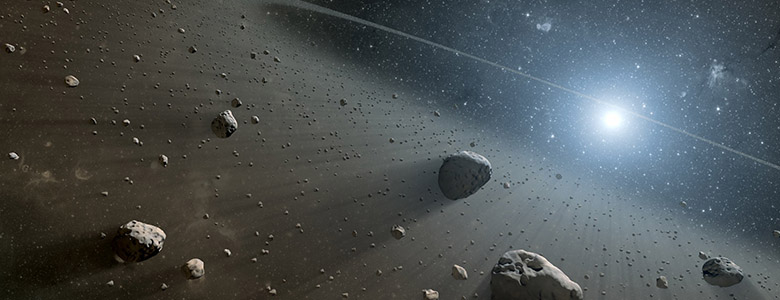
June 1, 2017
The Near-Earth Object Wide-field Infrared Survey Explorer (NEOWISE) and IPAC at the California Institute of Technology announce the NEOWISE 2017 Data Release.
The 2017 Data Release includes all data acquired during the third year of the NEOWISE Reactivation mission (Mainzer et al. 2014, ApJ, 792, 30), 13 December 2015 to 13 December 2016. These data are combined with the Year 1 and 2 NEOWISE data into a single archive that contains approximately 7.7 million sets of 3.4 and 4.6 micron images and a database of over 57.7 billion source detections extracted from those images.
NEOWISE scanned the sky nearly six complete times during the first three years of survey operations, with approximately six months between survey passes. With twelve or more independent 3.4 and 4.6 micron exposures made on each point of the sky during each survey epoch, the NEOWISE archive is a time-domain resource for extracting multiple, independent thermal flux and position measurements of solar system small bodies, as well as background galactic and extragalactic sources.
A quick guide to the NEOWISE data release, data access instructions and supporting documentation is available at http://wise2.ipac.caltech.edu/docs/release/neowise/neowise_2017_release_intro.html.
Access to the NEOWISE data products is available via the on-line and API services of the NASA/IPAC Infrared Science Archive at https://irsa.ipac.caltech.edu.
IRSA's new Time Series Tool at https://irsa.ipac.caltech.edu/irsaviewer/timeseries enables interactive visualization and analysis of NEOWISE light curve and image data.
NEOWISE (PI: A. Mainzer) is a project of the Jet Propulsion Laboratory/California Institute of Technology. NEOWISE is funded by the National Aeronautics and Space Administration Planetary Science Division. IPAC is responsible for ingestion and processing of raw data, production of final data products, archiving mission science and engineering data, and distributing WISE data to the community through NASA/IPAC Infrared Science Archive (IRSA). The IPAC Communications & Education team supports public affairs and outreach by preparing mission images for public release.